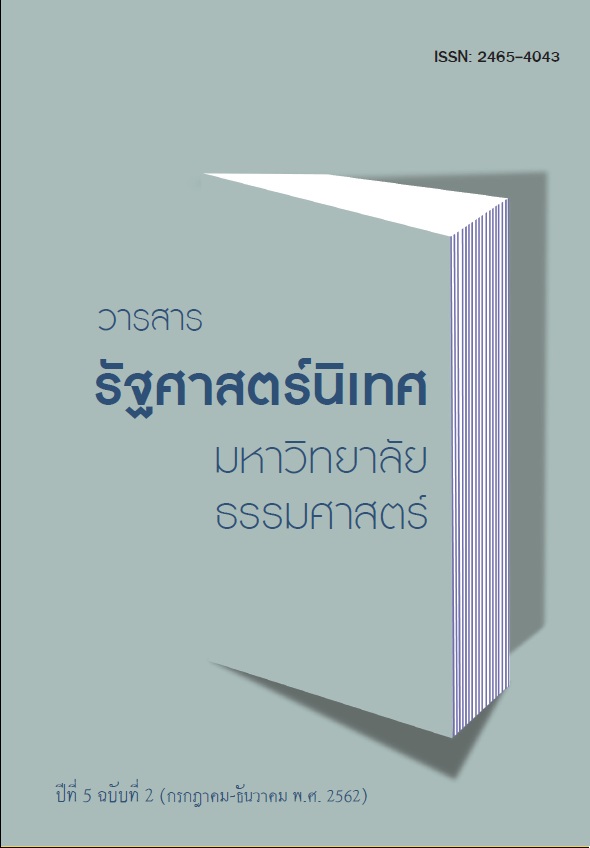มุมมองที่ชาติเอเชียตะวันออกเฉียงใต้มีต่อบทบาทด้านความมั่นคงในภูมิภาคของญี่ปุ่นและการแก้ไขรัฐธรรมนูญมาตรา 9 กรณีศึกษาฟิลิปปินส์และสิงคโปร์
Main Article Content
บทคัดย่อ
Japan’s security role was confined by its Constitution for its distinguished Article 9 with the clause on renunciation of war. The article, as well as Japanese regional security role, has been developed through times. In literature, Japan’s security role was discussed in connection with neighbor’s reactions, mostly on but limited to China and Korea, however, not much on Southeast Asia. Selecting the case of the Philippines and Singapore as the case study, this paper scopes its timeframe from 1977 when the Fukuda Doctrine was unfolded, formalizing the first codification of Japan’s policy towards Southeast Asia to 2015 when the Japanese Parliament passed the bills legalizing collective self-defense. The timeframe of study could indicate how countries in Southeast Asia has shifted its perceptions towards Japan’s regional security role and Article 9 Constitutional amendment through periods. The shift in perception would then be discussed in conjunction with the significance of memory of World War II in determining Japan’s regional security as well as the relevancy of Fukuda Doctrine in the circumstances different from that in 1977.


